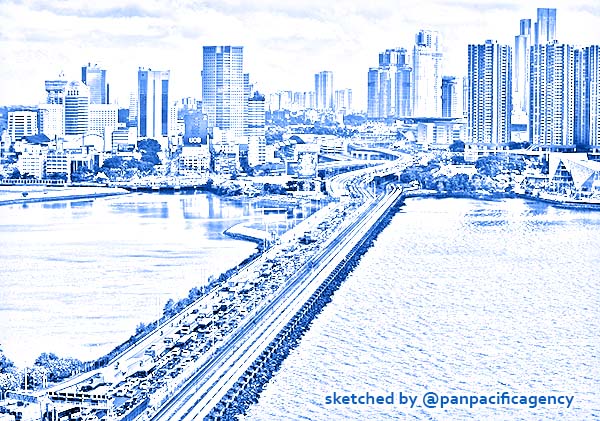Malaysia and Singapore terminate high speed rail project

Commuters take the Woodlands Causeway to Singapore from Johor a day before Malaysia imposes a lockdown on travel due to the coronavirus outbreak in Singapore March 17, 2020. REUTERS/Edgar Su. Sketched by the Pan Pacific Agency.
KUALA LUMPUR, Jan 8, 2021, PM. The Kuala Lumpur – Singapore high speed rail (HSR) project has been terminated due to the two sides did not reach an agreement before the suspension period ended, Pincent Masons reported.
According to Singapore’s transport minister Ong Ye Kung, Singapore has spent more than S$270 million ($2.05m) on consultancy services, infrastructure design, and manpower for the project.
Up to now, Singapore has received S$15m ($11.4m) from Malaysia. Malaysia agreed to terminate the HSR agreement and to compensate Singapore for incurred costs following a discussion in December, a joint statement said. The compensation amount for the termination and schedule for payment are specified in the agreements, according to Singapore’s transport minister Ong Ye Kung. Malaysia has requested a small sum of miscellaneous abortive costs for the suspension of the project which is currently being assessed by Singapore.
The project agreement was signed in 2016 and suspended in September 2018 at Malaysia’s request , with the deadline for the extension of the suspension expiring on 31 December.
The KL-SG HSR was formally approved in 2013 and construction had been scheduled to start in 2017 and complete by 2026, cutting travel time between Malaysia’s capital Kuala Lumpur and Singapore to 90 minutes.
Benjamin Tay of Pinsent Masons MPillay, the Singapore joint law venture between MPillay and Pinsent Masons, the law firm behind Out-Law, said: “It would be interesting to see how the Singapore government responds moving forward if the remainder of the agreed compensation amounts are not received in full by the stipulated deadline. This project underscores the importance of a robust and detailed mechanism for termination payments in the underlying contract between parties.”